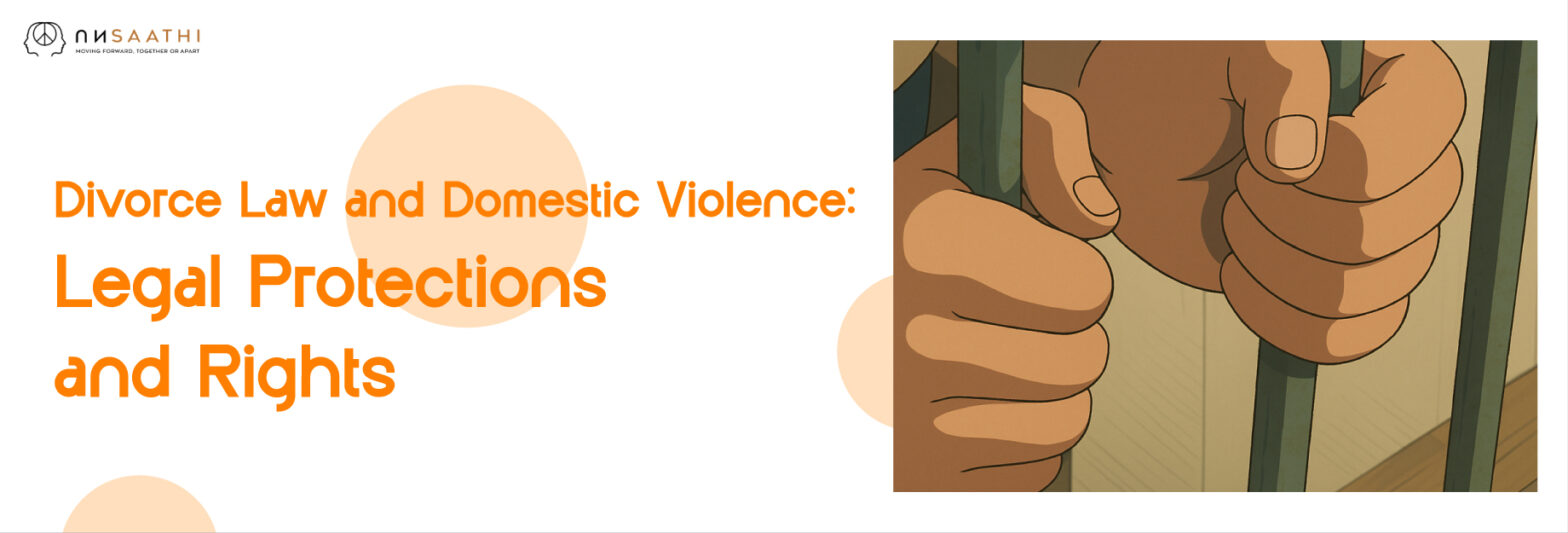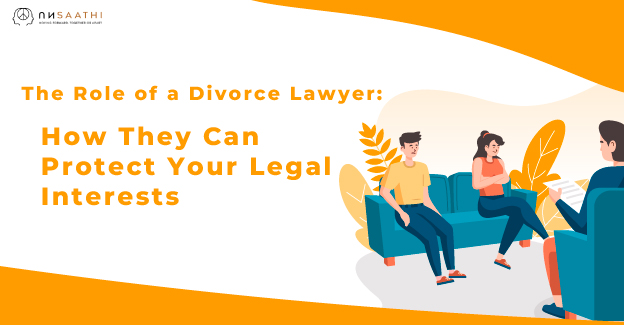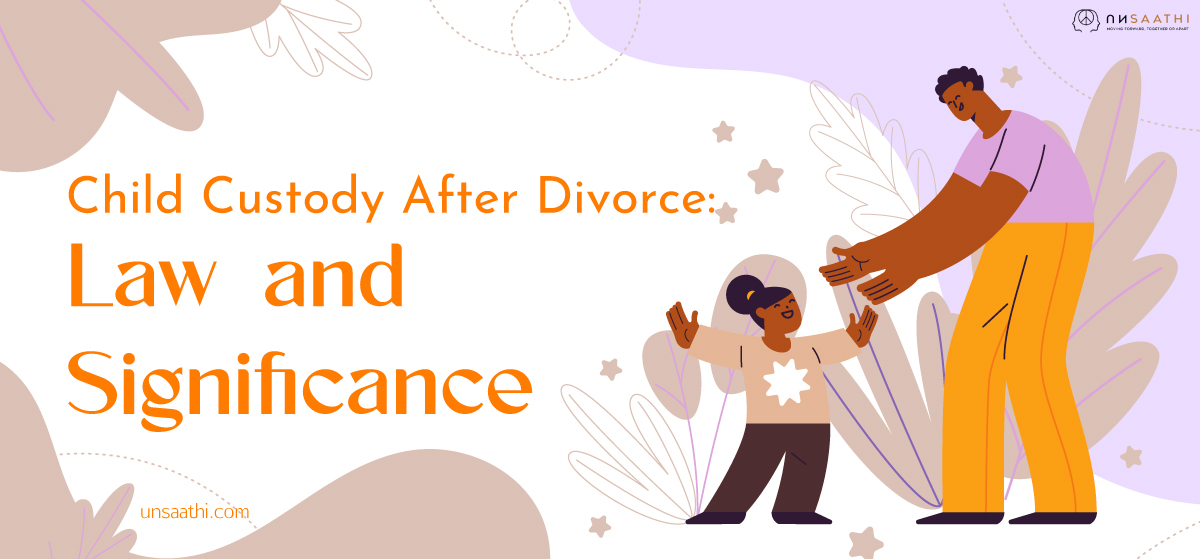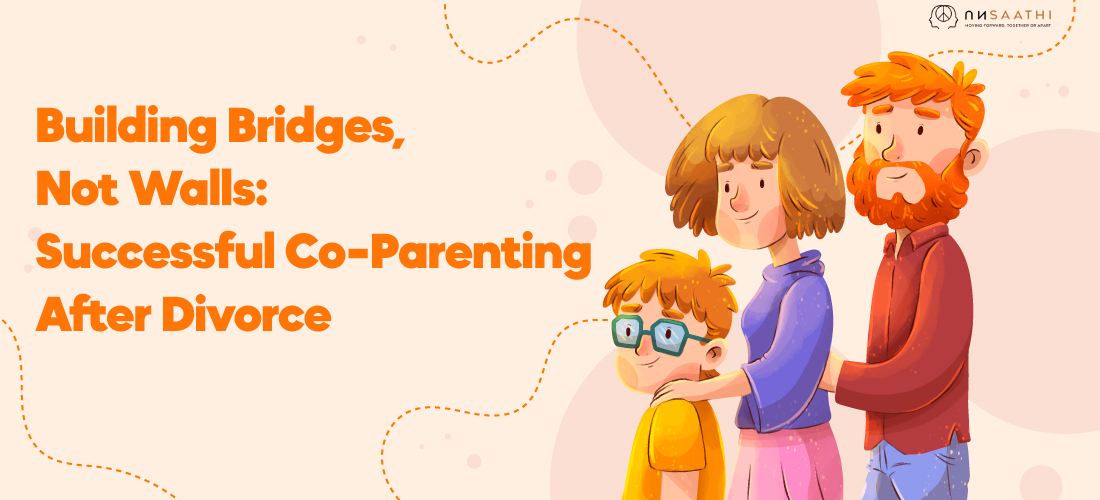Divorce Law and Domestic Violence: Legal Protections and Rights

Divorce is a complex process, but it becomes more difficult in domestic violence situations. Be it physical, emotional, psychological or both, or all of the above are all impacting factors upon divorce proceedings regarding child custody, spousal support and property division. For victims of domestic violence, it is essential to provide them with solid legal protection as they go through their divorce.
This article describes the intersection of divorce law and domestic violence, the legal protection afforded to victims and the actions taken by the legal system to protect victims’ rights.
What Is Domestic Violence In Divorce Cases
Domestic violence is an abusive pattern of behaviours used against a partner to gain and maintain power over them. That abuse can include, but is not limited to, being hit, slapped, choked, etc.
Cruelty also includes emotional abuse, psychological abuse (intimidation, gaslighting, threats, manipulation), mockery, humiliation, nonstop censure, etc. Financial abuse, which is controlling money, preventing employment, and withholding financial resources, is also a form of cruelty in marriage. Furthermore, sexual abuse, like being into coerced sex acts, spousal rape, and reproductive control, are also counted as cruelty.
An abusive marriage can lead to emotional distress as well as several legal aspects. Domestic violence allegations are taken very seriously by courts, and even more so when children are involved.
Section 13,(1)(A) of the Hindu Marriage Act allows cruelty to be a ground for divorce. Section 85 of the Bharatiya Nyaya Sanhita and Section 498A consider cruelty in marriage a domestic offence. Additionally, the definition of cruelty has been elaborated in Section 86 of the Bharatiya Nyaya Sanhita. As defined in the Section 86, Bhartiya Nyaya Sanhita, 2023 “Cruelty” means:
1). If it is one that the woman commit suicide, or which cause harm to the limb or health or danger to life of the woman. or
2). Harassment of a woman, where such harassment is with a view to coerce her or any person related to her to meet any unlawful demand for any property or valuable security or is on account of failure by her or any person related to her to meet such demand.
Protective Orders for Victims of Domestic Violence
Family law and criminal statutes offer various protections for victims of domestic violence. These protections help to guarantee their safety and provide legal recourse against abusive spouses.
Protective Orders and Restraining Orders: The first step for victims who want protection is usually a restraining order (or protective order). This legal document bars the abuser from contacting or approaching the victim. There are several types of restraining orders:
- Emergency Protective Orders (EPO): Law enforcement agencies order these for an immediate protection order, and these are usually only valid for a couple of days.
- Temporary Restraining Orders (TROs): A court order that is issued, typically lasting a couple of weeks until a full hearing can occur.
- Permanent Restraining Orders: Issued following a court hearing, provides long-term protection that may last for years. A restraining order can provide you with more protections, including custody of your children, use of your joint home, and access to financial support.
Reasons for Divorce Due to Domestic Violence
There are several provisions in personal laws like Section 13(1)(a) of the Hindu Marriage Act, section 27(1)(a) of the Special Marriage Act, Section 2 of the Dissolution of Muslim Marriage Act, 1939, etc, that consider cruelty as a ground for divorce in India. The burden of proof remains on the victim. Further, there can be various consequences if the spouse is found guilty. Some of them are:
Alimony and spousal support: Alimony and spousal support awards impact if the spouse is found guilty of charges of cruelty in marriage. Courts may favour the victim in financial settlements to prevent continuing economic hardship to them. There are several ways domestic violence victims can qualify for financial assistance:
Spousal Support (Alimony): If the victim was financially reliant on their abuser, courts could decide to award them significantly higher alimony payments.
Child Support: The abusive spouse must continue to pay for their child’s care.
Child Custody and Visitation Rights: Child custody in the context of domestic violence becomes a crucial matter. Courts often consider the following when determining what is in the best interests of a child. Thus, the court usually offers custody to the victim parent to safeguard their interests. The court also takes other factors into consideration, like capacity of each parent to offer a stable home.
Sole custody may be granted to the victims of domestic violence for the safety of the child. The court may order supervised visitation for the abusive parent, meaning their contact is supervised by a professional or neutral third party.
Restitution for Abuse: Some courts grant damages for medical expenses, therapy and other costs incurred as a result of the abuse.
Victims may also be eligible for public assistance programs, such as housing assistance and job services, to help them become self-sufficient.
Criminal Charges Against Abusers: On the most end, a spouse may face a criminal charge for domestic violence. These charges may include:
Assault and battery, Stalking or harassment, Violating a restraining order
Child endangerment, etc. Criminal convictions can support females’ cases in divorce and custody battles.
How a Divorce Lawyer helps in Domestic violence cases
For victims who want to get the legal protection and fair outcome they deserve, a divorce attorney with experience in how domestic violence works is a must. An attorney serves as a crucial pillar of support, guiding victims through the intricate divorce process with an emphasis on ensuring their safety. A divorce attorney can:
- Help you file restraining orders for your immediate safety and further advocate for victims in court for custody, support and equitable distribution of assets.
- Help you collect proof of the abuse, including medical records, police reports and statements from witnesses.
- Help the victim negotiate settlements to get financial security.
- Seek long-term safeguards, like permanent custody and supervised visitation.
- Also offer emotional support and strength by providing them with the right information.
- Helps to protect your financial assets.
Not only this, the divorce lawyers help to maintain the confidentiality of the case, they also help to file the charges, so that the husband can be punished accordingly. Having a divorce lawyer along with you will always be beneficial as they will act as a shield for you in such complex divorce cases.
Divorce Process for Victims of Domestic Violence
Survivors who want to escape an abusive marriage should do the following to help themselves be safe and to protect their legal rights:
Develop a Safety Plan: Before filing for divorce, the victims should devise a safety plan that includes the strategy’s crux, shelter, and temporary housing with family and friends. For example, important documents (IDs, financial records, birth certificates) should be stored in a safe location.
Further, having someone you can check in with periodically, especially if someone can alert supportive individuals (e.g., family members), is also important.
Gather Evidence of Abuse: The documentation is critical to establishing domestic violence in court. Victims should collect the Medical records describing the wounds along with photos of physical injury or damaged property. Further, the text, email, and voicemails will also act as proof. The testimony from friends, family members, or neighbours is also crucial.
Obtain Legal Representation: If you are a victim of domestic violence, a divorce attorney can assist you in the process of filing for divorce, secure restraining orders, and hold your abuser accountable through the legal system. For victims facing financial barriers, legal aid organizations may provide pro bono or low-cost services.
Obtain Lawyer, File for Divorce and Protection Orders: Victims should file for divorce once they are in a safe place. At the same time, they should seek protective orders that will prevent the abuser from retaliating.
Emotional and Financial Help: Leaving an abusive relationship takes an emotional toll. Victims must reach out for help, such as therapists and support groups focused on recovering from domestic violence.
Additionally, they should talk to financial advisors about financial independence. Various community resources offer shelter, food, and job assistance to victims of domestic violence.
Court Proceedings and Considerations: The court proceedings must be conducted with the utmost sensitivity to the family’s victims, which, in most divorce cases involving domestic violence, is the victim. Urgent protection can be requested by applying for an expedited hearing. Confidentiality protects private matters. Witness protection (if needed) can be obtained. Courts weigh the trauma effect on testimony. It is essential to have legal representation from skilled attorneys.
Victims safety and welfare of children are top in the list of judges leading to a fair distribution of property and maintenance. Evidence of abuse is off the charts. It recognizes how domestic violence is a different crime from others and one that requires balancing the need for justice with the long-term needs of the victim.
Conclusion – Empowering Victims Through Legal Protections
Domestic violence is one of the grounds for divorce. Further, restraining orders, sole custody rights and financial support are also provided through spousal and child alimony payments. All of these allow victims to pick up the pieces of their lives and have a better future.
If you or someone you know has experienced cruelty, seeking legal help early on can help ensure your protection and justice. Adequate legal advice, emotional affording, and financial assistance enable victims to proceed with security and self-assurance.




